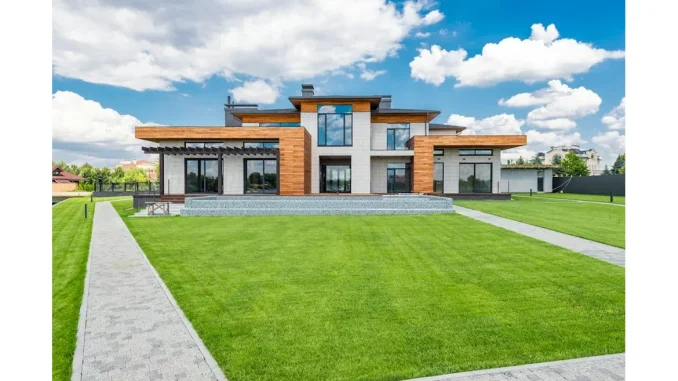
In a rapidly advancing world where sustainability and energy efficiency have evolved from mere catchphrases to foundational elements of real estate development, the significance of building certifications has reached unprecedented levels. These certifications transcend mere compliance, actively shaping the future of architectural design, construction, and habitation. By championing active travel, enhancing occupant well-being, and ensuring robust digital connectivity, certifications such as ActiveScore, BER, EPC, WELL, and WiredScore are setting new benchmarks in the real estate sector.
ActiveScore certification has emerged as a pivotal player in sustainable real estate, highlighting buildings that prioritise active travel provisions and foster healthy workplace environments. This certification establishes rigorous standards for cycling facilities, showers, and way-finding systems, thereby encouraging sustainable transportation options. Charlemont Square in Dublin, which has achieved Platinum ActiveScore certification, exemplifies commitment to creating spaces that cater to individuals who opt for eco-friendly modes of transportation, promoting a healthier and more sustainable lifestyle. Such initiatives not only reduce carbon footprints but also enhance the overall well-being of occupants.
Energy efficiency remains at the core of sustainable building practices, with BER (Building Energy Rating) and EPC (Energy Performance Certificate) playing critical roles. These certifications are essential for assessing the energy efficiency of buildings across Ireland and Europe. In Ireland, BER is mandatory for both residential and commercial properties, providing a detailed rating system from A1 (most efficient) to G (least efficient). These ratings offer valuable insights into a building’s energy efficiency levels, aiding in the reduction of carbon emissions and reflecting a building’s commitment to sustainability and environmental stewardship. By adopting these standards, developers can significantly improve the energy performance of their buildings, contributing to a greener future.
The WELL Building Standard has garnered significant attention for its comprehensive approach to enhancing occupant well-being. This certification delves into extensive evaluations of air quality, water quality, nourishment, light, fitness, comfort, and mental well-being. Buildings such as Fitzwilliam 28 in Dublin, which has attained WELL Gold certification, demonstrate the transformative impact of prioritising occupant health in real estate development. WELL-certified buildings are known to boost employee satisfaction, reduce absenteeism, and enhance overall productivity. This underscores the importance of creating environments where individuals can thrive physically, mentally, and emotionally, thereby leading to a more engaged and productive workforce.
In the digital age, connectivity is indispensable, making WiredScore certification a crucial marker for buildings aiming to meet tenants’ technological needs. This certification assesses internet connectivity and technological amenities, ranging from Qualified to Platinum, thereby increasing a building’s appeal in the digital era. Charlemont Square in Dublin, with its WiredScore certification, stands as a prime example of how modern buildings can provide a seamless digital experience for their occupants, ensuring they remain connected in an increasingly digital world. This connectivity not only enhances the tenant experience but also supports the integration of smart building technologies, paving the way for future innovations.
Dublin’s real estate landscape is replete with exemplary cases of buildings that have embraced sustainability accreditations to create environmentally conscious and occupant-friendly spaces. Charlemont Square, with its Platinum ActiveScore and WiredScore certifications, and Fitzwilliam 28, with its WELL Gold certification, stand as shining examples of sustainable development in the city. These buildings not only embody the principles of energy efficiency and occupant well-being but also set a benchmark for future developments to prioritise sustainability. By adopting such standards, developers can enhance the marketability of their properties, attract discerning tenants, and contribute to the overall sustainability goals of the city.
As the real estate market continues to evolve, certifications like ActiveScore, BER, EPC, WELL, and WiredScore are becoming instrumental in shaping the future of buildings. These certifications promote environmentally responsible practices, enhance occupant well-being, and meet the evolving needs of tenants. By prioritising sustainability, buildings contribute to a greener future and create healthier, more appealing spaces for people to live, work, and thrive in. The integration of these certifications provides a holistic approach to sustainable development, ensuring that buildings are not only energy-efficient and technologically advanced but also nurturing environments that support the well-being of their occupants.
For real estate developers, embracing these certifications is not merely about meeting regulatory requirements but about contributing to a larger movement towards sustainability and human well-being. The examples set by buildings in Dublin illustrate the tangible benefits of such an approach, from enhanced marketability to improved occupant satisfaction and reduced environmental impact. By adopting these standards, developers can lead the charge towards a more sustainable and resilient future, ensuring that our built environments are not just structures of concrete and steel, but vibrant, living spaces that positively contribute to the world around us.


Be the first to comment